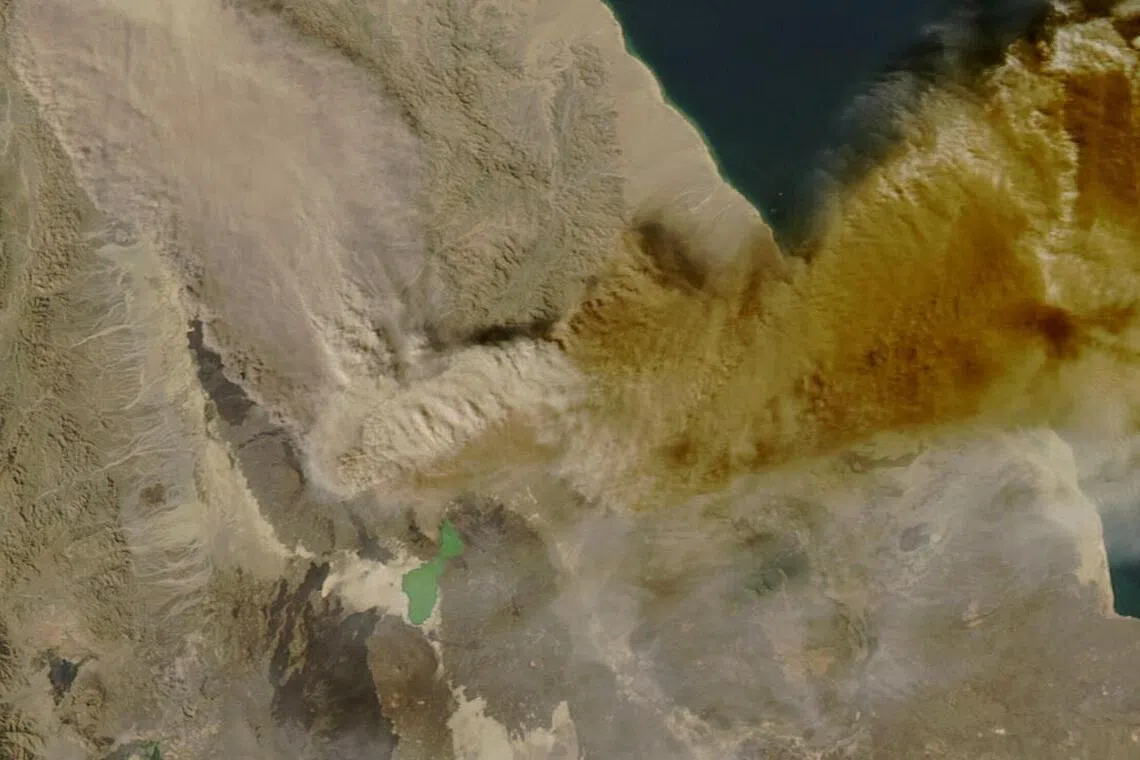Unprecedented Volcanic Eruption in Ethiopia Disrupts Air Travel Across Asia
An extraordinary natural event unfolded on November 23rd, as Ethiopia's Hayli Gubbi volcano erupted for the first time in recorded history, unleashing massive ash plumes that soared an astounding 14 kilometers into the atmosphere. This unprecedented eruption has since sent ripples of disruption across the aviation sector, particularly impacting flights in and around India.
Indian Airlines Grounded Amid Ash Cloud Concerns
In response to the towering ash cloud, major Indian carriers Air India and Akasa Air announced on November 25th that they were compelled to cancel several flights. Air India confirmed the cancellation of 11 flights scheduled for November 24th and 25th. This decisive action was taken to facilitate precautionary checks on aircraft that had traversed regions potentially affected by the volcanic fallout, aligning with a directive issued by India's aviation regulatory body.
Akasa Air, a newer player in the Indian aviation scene, also confirmed the grounding of flights to key Middle Eastern destinations, including Jeddah, Kuwait, and Abu Dhabi, over the same two-day period.
Ash Plume's Trajectory and Clearing Skies
The extensive ash cloud, originating from the Hayli Gubbi volcano, has been meticulously tracked as it migrated eastward. Initially, it cast its shadow over parts of Yemen and Oman before reaching Pakistan and northern India by November 24th, according to Flightradar24 data.
The India Meteorological Department provided a hopeful update, stating that the ash cloud, currently moving towards China, was anticipated to clear Indian airspace by 10 PM Singapore time on November 25th. This forecast offers a prospect of normalization for air traffic operations in the region.
Global Impact of Volcanic Ash
Volcanic ash, comprising pulverized rock, minerals, and volcanic glass, poses a significant hazard to aircraft engines and can impair visibility, making flight operations extremely dangerous. The swift response from airlines and aviation authorities underscores the critical importance of safety protocols when faced with such unpredictable natural phenomena.
This event serves as a stark reminder of the far-reaching consequences that geological activities can have on global infrastructure and daily life.

